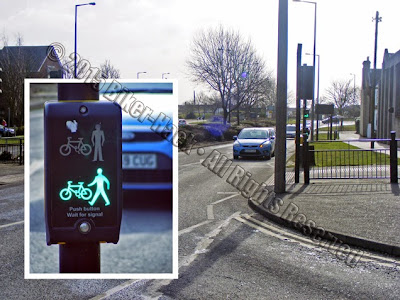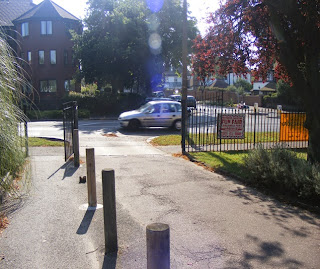What will it take for Britain to be more like the Netherlands?
So, there I was, sitting on my sofa, watching ITV 4's highlights report about the Tour de France 2015 on its first rest day (Monday, July 13).
I'm not sure what I was expecting to watch - it was a rest day after all - but it definitely wasn't cycling champion Chris Boardman's inspiring report about cycling in the Dutch city of Utrecht.
It's not the first time Boardman has flagged up the progressive attitude towards cycling in the Netherlands. Not much more than a month ago, he shared a link on his Twitter feed to a film about cycling in Groningen. (To watch it, click here) More recently, he has shared a link another link about cycling in Utrecht (which you can find here).
Boardman's inspiring conclusion to his report for ITV's Tour de France coverage was so stirring, it fired me to leap off my sofa and run to my computer keyboard.
I'll be honest, I've never cycled in the Netherlands. But I do cycle every day to get around my home town of Southend-on-sea, and also in central London where I work most days.
It wasn't that long ago on June 22, 2015 when I turned down a street near the Bank of England in central London on my way to work in Farringdon. Just minutes away, PwC employee Ying Tao lay dying, after being hit by a tipper truck on a notoriously horrible junction. It was at work later that day that I realised the reason traffic had been so bad that morning was due to this fatal accident. I'd missed it by metres and minutes.
The London Cycling Campaign (LCC) held a protest at the Bank of England crossroads a few days later to commemorate Ying and demanded action. LCC's chief executive Ashok Sinha said a "complete redesign of major junctions to create safe space for cycling" is the first of three steps needed to reduce the road danger faced by cyclists on a daily basis. (Click here for LCC's full report.)
I couldn't help think about this as I watched Chris Boardman talking about the safety of cycling in Utrecht, where hardly anyone wears a cycle helmet and yet the Netherlands has the lowest levels of head injuries among cyclists. Are the Dutch invincible? No, they just have road layouts that put cycling first. And that takes more than a bit of blue paint down the side of a road. Of course, without the proper facilities, who wants to ride a bike in Britain?
In the conclusion to his report, Boardman called on politicians to pull their fingers out and act. Of course, he put it far more powerfully than my crude summary. Boardman said:
"In my opinion, the people who make big transport spending decisions on our behalf should be obliged to come and spend just a few days here (Utrecht) before deciding what is and what isn't good value for public money. I've spent a couple of days now riding around the streets of Utrecht and I've seen tens of thousands, if not hundreds of thousands of bikes. But I haven't seen a single cyclist. I've just seen normal people in normal clothes doing normal things, dressed for the destination and not the journey. The bicycle is just a simple, fun, inexpensive way to get from A to B. It is a contraption that quite literally has the potential to change the world - if we let it."Well said Chris.
It really is time for people to stop dying on the way to work. Something has got to be done about it. And it has got to start right now - not next year, next month or even next week. Otherwise, there'll be another dead cyclist on our streets.
So, who's up for a #millionbikeprotest? Name the date, and I'll be there.
Resources
If you want to watch Chris Boardman's report on Utrecht, click here.




















